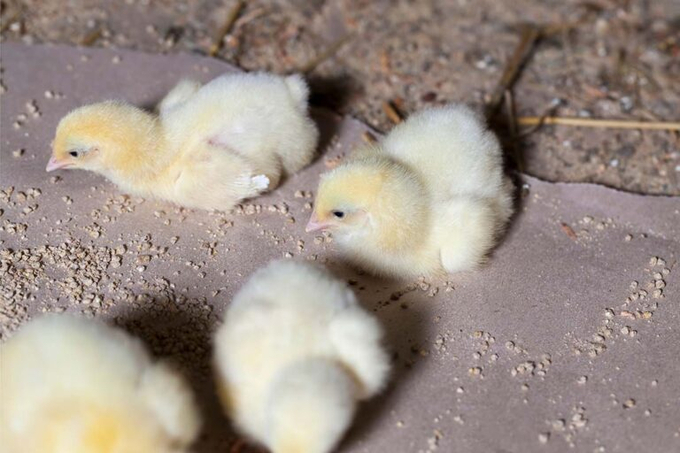November 28, 2025 | 03:46 GMT +7
November 28, 2025 | 03:46 GMT +7
Hotline: 0913.378.918
November 28, 2025 | 03:46 GMT +7
Hotline: 0913.378.918

By 2030, it is expected that Russian genetics could represent 25% of the country's poultry meat production. Photo: Canva
The construction of the new complex in the Chelyabinsk Oblast has already started, the Russian Agricultural Ministry said in a statement in February. The 3.5 billion rouble (US$32 million) project is carried out by private Russian agricultural firm Sitno in cooperation with scientists from All-Russian Research and Technological Institute of Poultry Farming, engaged in developing the new crossbreed.
The facility designed to breed 1 million chicks of parent flock per year is due to release the first marketable products in 2025, the Ministry indicated.
Smena 9 is the first domestic crossbreed developed in Russia since the Soviet times. It was registered for commercial use in 2020, though the field trials of its productivity are still ongoing.
By 2030, Russian genetics should represent 25% of the country’s poultry meat production, Dmitry Patrushev, the Russian agricultural minister, unveiled during an industry conference in early February. The first Smena 9 genetic centre was put into operation in the Moscow Oblast at the end of 2023 with a goal to facilitate import-replacement in this field, he emphasised.
The investment cost of the facility was 5 billion roubles (US$48 million).
These efforts are generally in line with the Russian government’s campaign to move the meat and dairy industry from the import needle. Russia has established its breeding base on 13 species of farmed animals. The authorities also work on the information and analytical system to facilitate this process.
According to Patrushev, this system is due to begin operation in 2026, though he has not provided additional details about its features.
Russian genetics account for only 5% of the poultry production in the country, estimated Konstantin Korneev, executive director of Rincon Management, a Moscow-based consultancy. The goal set by the government is reachable, providing that the sufficient inflow of investments in the sector is secured, Korneev told local publication Agroinvestor.
Korneev added that expanding Smena 9 production “is not about improving productivity” since all crossbreeds have almost the same efficiency parameters. The key rationale behind the project, he noted, is to lower dependence on imports.
The prospects of developing Russian poultry genetics also largely rely on export opportunities, Korneev said, expressing confidence that Russian genetics centres will undoubtedly try to promote Smena crossbreed among foreign customers.
(PW)

(VAN) A new study reveals how the simultaneous effects of ocean acidification, salinity and loss of oxygen are making the world more fragile.

(VAN) Hopes are growing that the creation of the first 3D turkey gut model could be a turning point in the battle against the virulent blackhead disease.

(VAN) Tyson, America’s biggest meat supplier, plans to shutter one of its largest beef processing plants as the industry continues to struggle with low cattle supplies and political pressure from Washington.

(VAN) New FAO study shows how digital solutions are empowering farmers and fishers to prevent losses and build resilient agrifood systems.

(VAN) Brazil's COP30 presidency pushed through a compromise climate deal on Saturday that would boost finance for poor nations coping with global warming but that omitted any mention of the fossil fuels driving it.

(VAN) Poultry farmers in the UK have been warned that they could face one of the worst winters yet for bird flu.

(VAN) Prices of main-crop paddy have risen sharply, with jasmine rice hitting 16,100 baht per tonne — the highest level in years.